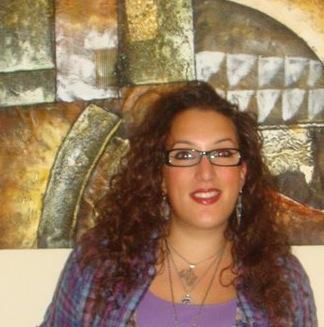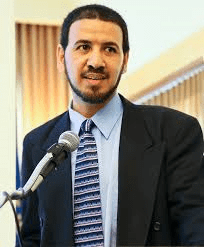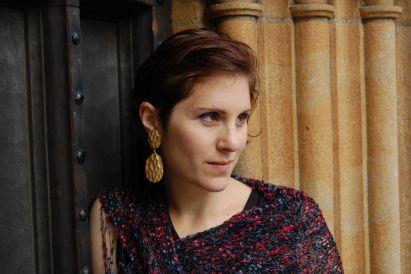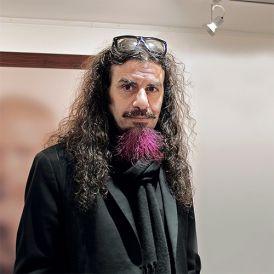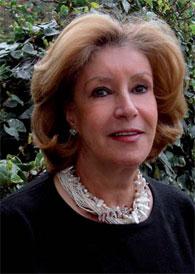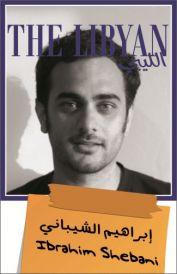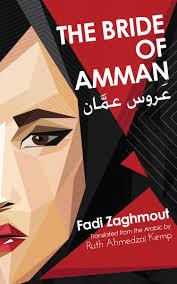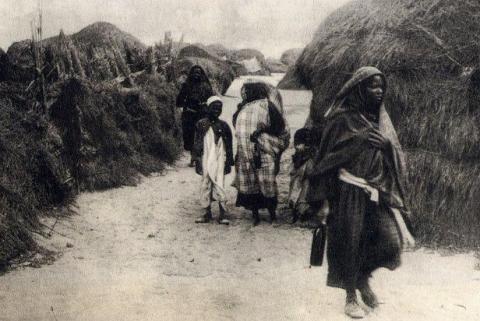Bringing Arab Cinematic Greats to London with the MENA Film Hub
All for the love of Arab films and London cinema, cinema, cinema! If in the past three years you have attended an Arab film or an Arab film festival in London, chances are the half-Egyptian half-English Yasmin El Derby was somehow involved in curating it, or working hard behind the scenes to bringing it to London’s Arab diaspora audience and others fascinated by world cinema.
As a freelance film curator, 28-year-old Yasmin El Derby is most passionate about the study, discovery and exploration of the very best of classic and contemporary Arab films coming out of the Middle East and North Africa (MENA) region and to share her treasure findings with others.
Having already co-founded and directed two London MENA Film Festivals in 2011 and 2012, as well as taking part in the film aspects of the Nour and Shubbak Arab Art Festivals, her latest project is the MENA Film Hub.
Launched in October 2013 with the British Moroccan actor Nabil Elouahabi, the MENA Film Hub aims to bring regular monthly screenings of Arab films to Notting Hill’s The Coronet Cinema and always showing on a Saturday lunch-time. They also aim to include post-screening discussions or Q+A’s with the directors where possible.
Having kicked off in October with Amin Matalqa’s ‘Captain Abu Raed’, the Hub’s next screening will be this weekend of the film ‘ASMAA’ directed by the Egyptian Amr Salama. Truly not to be missed, it deals with the highly sensitive issue of a woman living with HIV in contemporary Egypt based on a real extraordinary story.
Below Nahla Ink interviewed Yasmin El Derby to get a deeper insight into the practicalities of her work, as well as discussing the current MENA-films scene and MENA Film Hub.
Nahla): Tell me about the practicalities of your job and what goes on behind the scenes before any film screening?
El Derby: Most people think organising a film screening is simply about choosing a film and a venue, and off you go! But each screening consists of a lot more preparation and things differ depending on whether the screening is part of a festival programme or a one off screening. If part of a festival programme, I will first announce an open call for submissions and divide them into categories depending on genre and length.
Once the films start coming in the really fun part starts. I get to watch every single one from beginning to end and my job is to categorise them again depending on their strength and if the festival has a theme, how well it fits that theme. I draw up a shortlist of films for the festival director to view and then with him or her, we make another shortlist before we inform the filmmakers if their film has been successful.
Then the technical part. I have to get a ‘clean’ version of the films in the highest possible quality that might be via a Blu-ray disc or an online web-transfer (submissions will usually be sent watermarked or in a low quality). I then may need to convert the film files and include logos of the festival and sponsors that all depends on where the film is going to be screened and which equipment will be used. The discs or files are then tested at the venue.
If the screening is part of a monthly series or a one off, the process differs in that there may not be an open call for submissions, but relevant licences and agreements need to be in place. In the instance of a one off, the director or the distribution company involved may ask for a fee which could be anything from £100-£1,000 for one screening.
Relevant agreements and permissions also need to be given and signed for all the films and then the technical side of things happens the same as if for a festival. Once all of this is sorted out, the marketing and promotion take place; but, again, this differs depending on the venue being used. Some venues will assist with advertising but most cinemas will not if the agreement is for a private hire.
Nahla: How do you approach the directors and find films to sample?
El Derby: Generally via my networks through mutual contacts or referrals. Often directors or representatives from distribution companies will contact me, so now I have a sizeable library of films from which to select depending on the event and what suits.
I am basically a film nerd and there’s nothing I like more than watching films, so I keep my eyes and ears open all the time. I also constantly read film reviews for new material and search out old films. I often get films sent to me from people who have heard about an open call for submissions or who have heard that I am a film curator. I do also keep track of what’s happening at film schools and often get to see final year graduation projects that are often great.
Nahla: Do you travel for your job?
El Derby: Two of my biggest loves in life are films and travelling, so if given an opportunity to travel to a film festival I feel like I’m living the dream!
Nahla: How would you describe the current film scene in the MENA region?
El Derby: Exciting, brilliant and forward thinking! There are so many fabulous films coming out of the region and I hope I can continue to bring them to audiences in London.
Nahla: What platforms are available for Arab filmmakers in and outside the MENA region?
El Derby: There are a huge number of film festivals that happen in the Arab world today that are just as big as festivals such as Cannes and the London Film Festival. There has also been a marked increase in interest in films from MENA in the Western world and we have seen quite a few festivals and events pop up.
The Nour Festival, for example, which is sponsored by the Royal Borough of Kensington and Chelsea, now takes place in London every October-November and is a great showcase for films and art from the Arab world. There is also the bi-annual Shubbak Festival and all the regular film festivals like that of the BFI, that seem to be taking much more of an interest in films from and about the Arab world.
Nahla: Is there a criterion for the films you select for the MENA Film Hub?
El Derby: There is no specific criterion except that the films be from or about the MENA region or made by a filmmaker of the Arab diaspora. We are now focused on feature films rather than documentaries but we will be expanding in the near future and holding more screenings at more venues to give us the scope to screen other genres.
Nahla: What have you learnt on this films journey?
El Derby: As previously mentioned, I am obsessed with film in general but one of the reasons I started to focus on films from the MENA region is due to my own cultural heritage, with my father being Egyptian and my mother English.
Growing up I didn’t see many Egyptian films as I didn’t speak or understand Arabic; but, as I got older, I realised there was this huge part of me that felt missing. Yes, I went to Egypt a lot as a child but never felt as though I completely fit in, mainly due to not being able to communicate with anyone, especially family members.
So I started learning Arabic as an adult and watching films helped, not only in terms of language and habits but I came to feel a strong connection with the region and my roots and heritage. On an intellectual level, I have learnt more about different ways of telling stories through film. For example, often due to censorship in the Middle East, certain issues can only be hinted at in a subtle way rather than being explicitly shown or spoken about between characters. It shows how ultimately the imagination is king and storytelling can survive with any form of censorship.
Nahla: Why London and why The Coronet?
El Derby: London is my home and I love it! And I have been a huge fan and dedicated customer of the Coronet for as long as I can remember and so has Nabil, so it made sense for us to go with this beautiful venue. The Coronet is also very accessible even if you don’t live in West London, it is less than a minute walk from Notting Hill Gate underground station, and the surrounding area is full of shops, cafés and restaurants. So people can make a day of it whenever they come to one of our lunchtime screenings.
Nahla: Tell me about your audience.
El Derby: Anyone and everyone with an interest in the region or in cinema or just wants to come and see a brilliant film they wouldn’t usually get to see!
NI: What else are you working at the moment?
El Derby: As well as the MENA Film Hub and freelance curating for festivals and events, I am acting as a UK representative to get distribution rights for certain films from the MENA region. I hope to take part in ensuring that films from the Arab world become a normal occurrence in cinema programming in the UK and not that we just see them during special occasions.
Also, currently and along with a brilliant creative and good friend Houda Armanouss, I’m working on a documentary focused on the concept of identity and what it means to different people. Away from the film-curating world for a millisecond, I am also writing a children’s book with my very good friend and owner of the dance-company United Grooves, Tania Diggory, but don’t want to say too much at this stage since we are at the early stages.
Nahla: Tell me more about ASMAA and why you want to show this film?
El Derby: This film is an absolute must see that has been written and directed by the immensely talented Egyptian director Amr Salama in 2011. Based on true events, it focuses on the strength and determination of an HIV positive woman living in contemporary Egypt; and, how she attempts to keep her medical status a secret until an opportunity comes for her to make a television appearance.
ASMAA is not only cinematically beautiful but it boldly raises and talks about such an important issue seldom discussed in the Arab world. It demonstrates not only the skill and beauty of cinema itself but also it will show a UK audience a different viewpoint and perspective from the Arab world.
At the MENA Film Hub, we are not in the game of perpetuating stereotypes and want to show something different to our audience and to always keep pushing the boundaries.
To find out more about the MENA Film Hub: https://www.facebook.com/MenaFilmHub
Note: This article was first published circa November 2013

